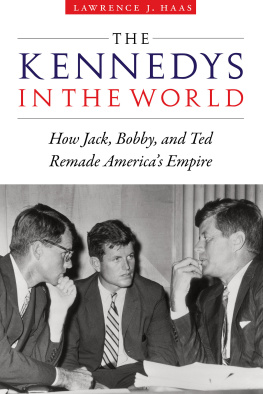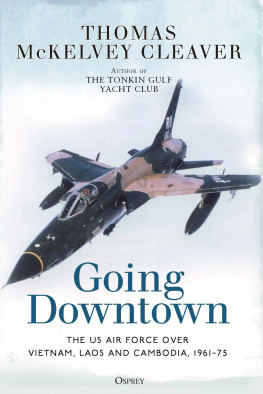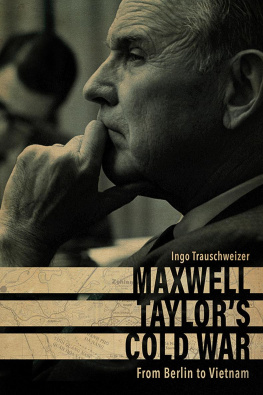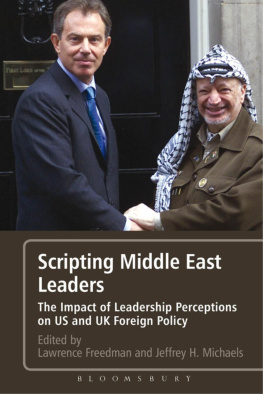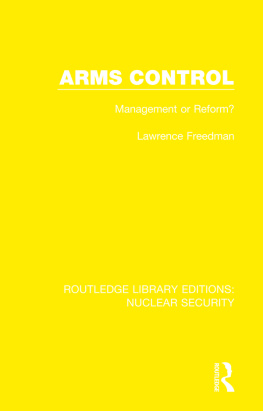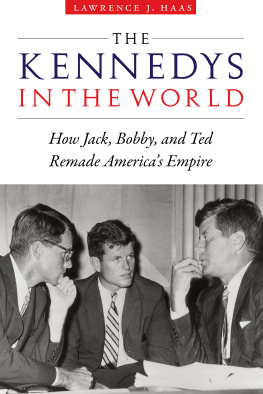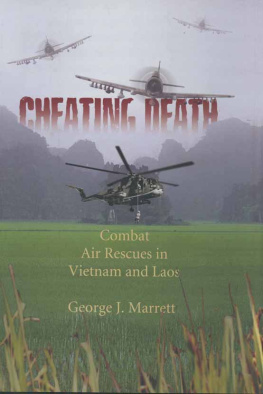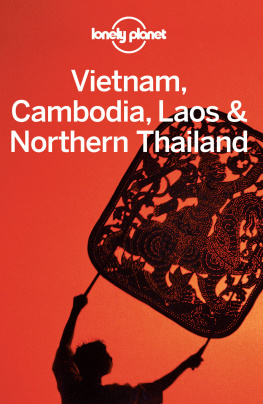Freedman Lawrence - Kennedys wars: Berlin, Cuba, Laos, and Vietnam
Here you can read online Freedman Lawrence - Kennedys wars: Berlin, Cuba, Laos, and Vietnam full text of the book (entire story) in english for free. Download pdf and epub, get meaning, cover and reviews about this ebook. City: Estats Units dAmèrica;Oxford, year: 2002;2000, publisher: Oxford University Press, genre: Politics. Description of the work, (preface) as well as reviews are available. Best literature library LitArk.com created for fans of good reading and offers a wide selection of genres:
Romance novel
Science fiction
Adventure
Detective
Science
History
Home and family
Prose
Art
Politics
Computer
Non-fiction
Religion
Business
Children
Humor
Choose a favorite category and find really read worthwhile books. Enjoy immersion in the world of imagination, feel the emotions of the characters or learn something new for yourself, make an fascinating discovery.

- Book:Kennedys wars: Berlin, Cuba, Laos, and Vietnam
- Author:
- Publisher:Oxford University Press
- Genre:
- Year:2002;2000
- City:Estats Units dAmèrica;Oxford
- Rating:5 / 5
- Favourites:Add to favourites
- Your mark:
- 100
- 1
- 2
- 3
- 4
- 5
Kennedys wars: Berlin, Cuba, Laos, and Vietnam: summary, description and annotation
We offer to read an annotation, description, summary or preface (depends on what the author of the book "Kennedys wars: Berlin, Cuba, Laos, and Vietnam" wrote himself). If you haven't found the necessary information about the book — write in the comments, we will try to find it.
Kennedys wars: Berlin, Cuba, Laos, and Vietnam — read online for free the complete book (whole text) full work
Below is the text of the book, divided by pages. System saving the place of the last page read, allows you to conveniently read the book "Kennedys wars: Berlin, Cuba, Laos, and Vietnam" online for free, without having to search again every time where you left off. Put a bookmark, and you can go to the page where you finished reading at any time.
Font size:
Interval:
Bookmark:
Kennedys Wars
Berlin, Cuba, Laos, and Vietnam
Lawrence Freedman

Oxford University Press
Oxford New York
Athens Auckland Bangkok Bogot
Buenos Aires Calcutta Cape Town Chennai Dar es Salaam Delhi
Florence Hong Kong Istanbul Karachi
Kuala Lumpur Madrid Melbourne
Mexico City Mumbai Nairobi Paris So Paulo Shanghai
Singapore Taipei Tokyo Toronto Warsaw
and associated companies in
Berlin Ibadan
Copyright 2000 by Lawrence Freedman
Published by Oxford University Press, Inc.
198 Madison Avenue, New York, New York, 10016
http://www.oup-usa.org
Oxford is a registered trademark of Oxford University Press
All rights reserved. No part of this publication may be reproduced,
stored in a retrieval system, or transmitted, in any form or by any means,
electronic, mechanical, photocopying, recording, or otherwise,
without the prior permission of Oxford University Press.
Library of Congress Cataloging-in-Publication Data
Freedman, Lawrence.
Kennedys wars : Berlin, Cuba, Laos, and Vietnam / Lawrence Freedman.
p. cm. Includes bibliographical references and index.
ISBN 019-5134532
1. Kennedy, John F. (John Fitzgerald), 19171963.
2. Kennedy, John F. (John Fitzgerald), 19171963Military leadership.
3. United StatesForeign relations19611963.
4. United StatesMilitary policy.
5. Berlin Wall, Berlin, Germany, 19611989.
6. CubaHistoryInvasion, 1961.
7. Cuban Missile Crisis, 1962.
8. Vietnamese Conflict, 19611975. I. Title.
E841 .F69 2000 973.922dc21 99087898
Printing number: 1 3 5 7 9 8 6 4 2
Printed in the United States of America
on acid-free paper
TO SAM
On 22 November 1963 John Fitzgerald Kennedy, thirty-fifth president of the United States, was shot by an assassin while campaigning in Dallas, Texas. Such a shocking death for a glamorous figure, at the peak of his power, encouraged a Kennedy industry that has already generated some one thousand books. The fact that his surviving family enjoyed achievement and adulation while suffering scandal and tragedy helps to explain the enduring fascination with all aspects of the Kennedy legend. The questions left unanswered, the policies still undeveloped, and the tragic sense of promise unfulfilled continue to draw historians to the early 1960s.
The history of his presidency was shaped at first by the rich and loving memoirs of two of his more liberal aides, Theodore Sorensen and Arthur Schlesinger Jr.
The drive to replace history as celebration by history as indictment culminated in Seymour Hershs The Dark Side of Camelot. foreign policy and concentrates on those issues most related to the fundamental issues of war and peace. The cold war was at its height and at times risked becoming extremely hot, yet catastrophe was avoided. Was this through good luck or good management? Kennedy inherited a troublesome commitment to South Vietnam and bequeathed it in an even worse condition to his successor. Does this mean that he would have got into as much of a mess in Vietnam as Lyndon Johnson, or might he have found an acceptable escape route?
Questions such as these are not new, but this does seem to be a good time to look for new answers. The recent growth of the documentary record of the Kennedy years has been quite astonishing, and there is a need to take stock of all the new material. These include the completion of the twenty-five-volume official documentary history of the foreign relations of the United States during the Kennedy years, an edition of transcripts from the Cuban missile crisis, a number of biographies of key players, and some fine works by academics. Furthermore, the opening up of Russian archives has made it possible to check with greater confidence than before Moscows views on the same set of crises. This is in addition to some well-established earlier works, substantial archive collections, and a rich set of memoirs (few involved with Kennedy seem to have been able to resist setting down their recollections). More keeps coming.
All this makes it much easier for a historian to develop interpretations based on evidence rather than speculation. The corollary of this privileged position is enormous difficulty when it comes to reproducing the partial visions, uncertainties, and fears that the actors experienced as they participated in the unfolding dramas, and in identifying what was not known and could not be grasped at the time. The key actors were often in the dark about the attitudes and behavior of other members of the same government, never mind the calculations of their enemies. The historian can see all sorts of things that were at best then dimly perceived and at worst missed altogether, yet while doing so can miss the connections between quite disparate events that happened to be coincident in time and were obvious to those involved.
In particular, the historian knows what happened next and so is always tempted to point to missed opportunities, recklessness, unnecessary caution, misperceptions, and miscalculations. We now know that Kennedy never got a chance at a second term, that Vietnam turned into a cruel and tragic war, that Castro outlived (at last count) another seven American presidents without renouncing his revolution, that the cold war was not only survived but concluded with communism completely discredited as an economic system as well as a political creed. It is hard to recall that Soviet communism once offered a serious ideological competitor to liberal capitalism and a fearful military threat. It is tempting to suppose that what now appears as blatantly self-serving and ideological language on the Western side was always recognized as such, and barely taken seriously by those who spoke it. The worldviews of the past are easy to caricature, without noting that they were rarely held unconditionally or without irony, and that there were wide variations in belief.
Part of the challenge for the historian in trying to get the measure of the Kennedy presidency is therefore to get back to the assumptions and expectations with which it started. Many of those who now write about Kennedy find it difficult to take the cold war seriously and are unimpressed by the fact that Kennedy took it very seriously indeed. In part this was expediencehe knew that appeasement was the gravest charge that might be leveled against himbut it was also conviction. Communism was something to be both despised and feared.
I have therefore attempted to set the intellectual as well as political context by referring to the concepts and theories circulating at the time around the American foreign policy establishment, as elaborated in important articles and books. Because their actual influence depended on the individuals who carried them into the heart of government, I also spend time on the key figures of the administration. Pen portraits of the striking individuals around Kennedythe assertive Robert McNamara, the diffident Dean Rusk, the assured McGeorge Bundy, the intense Robert Kennedyhave become almost de rigueur for any study of this period, but the role of such figures as Dean Acheson and Walt Rostow also deserves attention.
It is tempting to re-create the atmosphere of the Kennedy presidency, as some authors have successfully done, by recording the interplay of events, individuals, and decisions on an almost daily basis. Such a method brings home the numerous issues that a political leader faces simultaneously, all competing for time, and the complex interconnections that develop between them. Berlin, Cuba, Laos, and Vietnam were managed at more or less the same time by more or less the same group of people. These interconnections are important and I have tried to explore them, but I have also found it useful to address these crises in their own terms. I have tried to show how they would have appeared to Kennedy at the time, how policy options came to be defined, and how these were phrased in terms of prevalent beliefs about the nature of the underlying conflict, the risks attached to alternative courses of action, and the quality of available information.
Next pageFont size:
Interval:
Bookmark:
Similar books «Kennedys wars: Berlin, Cuba, Laos, and Vietnam»
Look at similar books to Kennedys wars: Berlin, Cuba, Laos, and Vietnam. We have selected literature similar in name and meaning in the hope of providing readers with more options to find new, interesting, not yet read works.
Discussion, reviews of the book Kennedys wars: Berlin, Cuba, Laos, and Vietnam and just readers' own opinions. Leave your comments, write what you think about the work, its meaning or the main characters. Specify what exactly you liked and what you didn't like, and why you think so.

